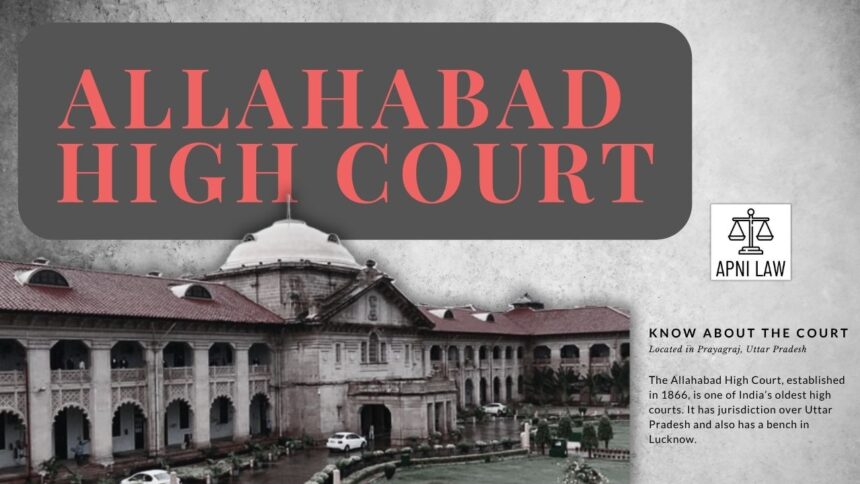Introduction
The Allahabad High Court recently declined to grant legal protection to a couple living in a “live-in” relationship because the woman is still legally married under the Hindu Marriage Act. The court made it clear that while personal liberty is fundamental, it does not allow one person to trample on the lawful rights of another. The judge held that the husband’s statutory right to stay with his wife takes priority over any claim of personal freedom by someone else.
Facts of Case
In this case, the woman and her live-in partner had filed a petition seeking a court order to prevent her husband from interfering in their life together and to secure state protection for their relationship. But the state informed the court that the woman’s first marriage was still valid—she had never divorced her husband, and there was no legal basis for the new union. She was living with her partner despite her first husband’s continued legal existence.
The bench, led by Justice Vivek Kumar Singh, strongly rejected their plea. The court underscored that if a person is already married and the spouse is alive, they cannot legally enter another live-in relationship without ending the first marriage through the proper legal process. The court said that allowing such protection would undermine the social structure of the country, effectively condoning relationships that are illicit under current law.
What Court Says
The High Court also warned that granting such protection might amount to shielding the couple from possible criminal liability. The court referenced Sections 494 and 495 of the Indian Penal Code, which penalize bigamy. By granting the writ petition, the court said it would in effect be enabling the couple to evade legal consequences under these sections.
In support of its decision, the court pointed out that the petitioners had failed to provide anything concrete to show they were living like a married couple. There was no evidence of a joint bank account, shared property, or common financial responsibilities. The court noted that there was no documentation, or even informal proof, to suggest that the pair were functioning more like spouses rather than simply cohabiting.
Ultimately, the court dismissed the writ petition, concluding that the couple has no legally enforceable right to demand protection in this situation. The freedom of one individual, the court held, cannot override the legal right of another, especially a statutorily protected spouse.
For any specific query call at +91 – 8569843472
Implications
This ruling sends a strong message that live-in relationships will not be protected in cases where one partner is already married under the Hindu Marriage Act. It highlights that personal liberty is not absolute and has its limits when it clashes with a spouse’s legal rights. The court’s decision may discourage similar petitions seeking protection for live-in relationships without first resolving existing marriages. It also reinforces the principle that the law prioritizes statutory rights of marriage over informal relationships that lack legal recognition.








